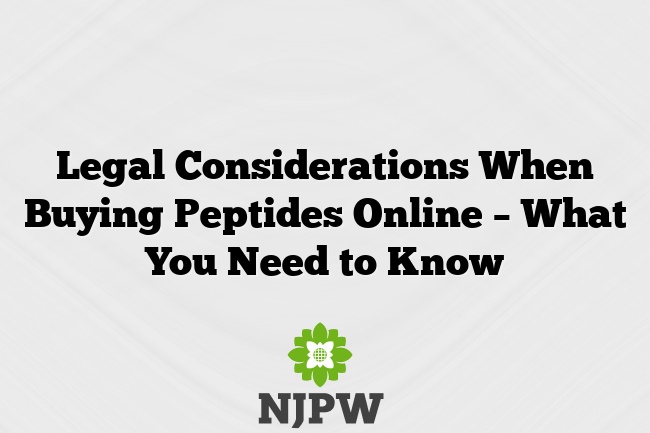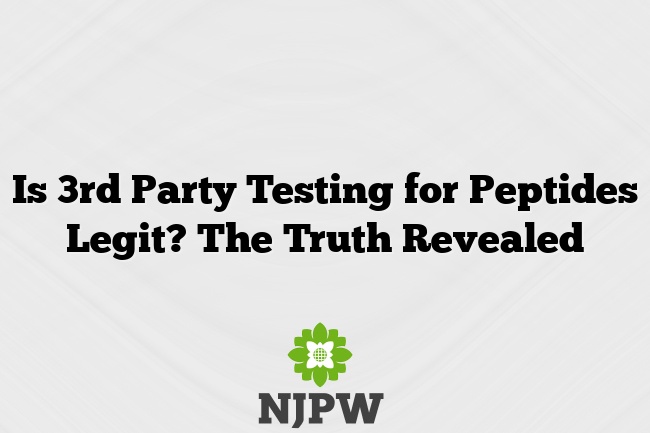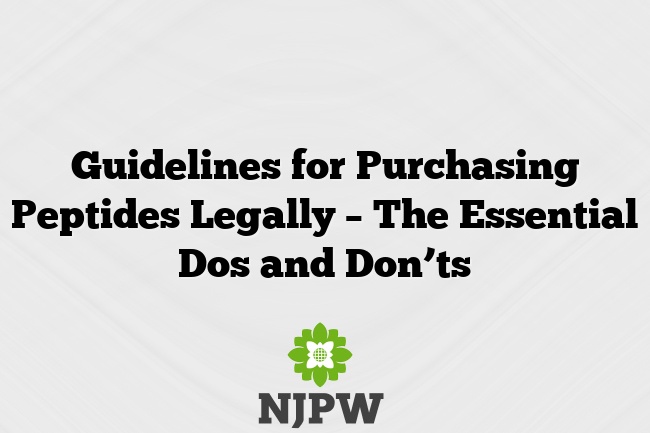Legal Considerations When Buying Peptides Online – What You Need to Know

Navigating the complex world of peptides can be an exciting yet daunting endeavor, especially when it comes to legal considerations surrounding online purchases. As researchers and enthusiasts continue to explore the vast potential of these remarkable compounds, it’s crucial to understand the nuances of the regulatory landscape.
| Key Considerations | Overview |
|---|---|
| Peptide Legality | The legal status of peptides can vary significantly depending on the specific compound, intended use, and the laws of the jurisdiction in which they are being purchased. |
| Regulatory Compliance | Navigating the complex web of peptide regulations is essential to ensure compliance and avoid potential legal risks. |
| Quality Assurance | Sourcing peptides from reputable vendors and ensuring proper testing and handling protocols are critical for safety and efficacy. |
In this comprehensive guide, we’ll explore the legal landscape of purchasing peptides online, identify reliable vendors, delve into quality assurance protocols, and navigate the regulatory frameworks that govern these remarkable compounds.
What are Peptides?
Peptides are short chains of amino acids that play a crucial role in a wide range of biological processes. These molecular building blocks are essential for protein synthesis, cell signaling, and hormone regulation, making them a subject of intense scientific interest and research.
The Legal Status of Purchasing Peptides Online
The legal status of purchasing peptides online can be a complex and ever-evolving landscape. In many countries, peptides are considered research chemicals and may be subject to specific regulations or prescription requirements. It’s crucial to thoroughly research the peptide laws and regulations in your jurisdiction to ensure compliance and avoid potential legal risks.
Some peptides may be classified as controlled substances, while others may be considered dietary supplements or cosmetic ingredients. The legality can also vary depending on the intended use of the peptide, such as research, personal consumption, or commercial applications.
Identifying Reputable Peptide Vendors
When purchasing peptides online, it’s essential to identify reputable vendors that adhere to strict quality control and regulatory compliance protocols. Look for vendors that provide detailed product information, batch testing results, and transparent shipping and return policies. Thoroughly research vendor reviews and ratings to ensure you’re working with a trustworthy source.
Quality Assurance and Testing Protocols
Ensuring the quality and purity of peptide compounds is paramount when purchasing online. Reputable vendors should have robust quality assurance and testing protocols in place, including batch-level analysis, product certification, and traceability measures. Look for vendors that provide comprehensive documentation and third-party test results to verify the authenticity and potency of their peptide products.
Navigating Regulatory Compliance
Navigating the complex web of peptide regulations is crucial to ensure compliance and avoid potential legal issues. Familiarize yourself with the import laws, prescription requirements, and reporting obligations in your country or region. Some peptides may require specific licenses or permits for purchase, possession, or use. Staying informed on the evolving legal frameworks surrounding peptides is essential to make informed decisions and maintain regulatory compliance.
Potential Health Risks and Precautions
While peptides hold immense therapeutic potential, they can also pose health risks if not used responsibly and under the guidance of medical professionals. Potential side effects may include hormonal imbalances, organ dysfunction, and adverse reactions. It’s crucial to follow dosage guidelines, storage and handling protocols, and consult with healthcare providers to ensure safety and efficacy.
Proper Storage and Handling of Peptide Compounds
Proper storage and handling of peptide compounds is essential to maintain their potency and stability. Factors such as temperature, humidity, and light exposure can significantly impact the quality and effectiveness of peptides. Adhere to the manufacturer’s guidelines for storage conditions and handling protocols to ensure the long-term viability of your peptide products.
Understanding Dosage and Administration Guidelines
Determining the appropriate dosage and administration method for peptides is crucial to ensure safety and efficacy. Factors such as the specific peptide compound, individual physiology, and intended use can all influence the optimal dosage. It’s essential to consult with healthcare professionals and follow the manufacturer’s instructions to avoid potential side effects and achieve the desired therapeutic outcomes.
Documenting and Reporting Purchases
Maintaining detailed documentation of your peptide purchases is crucial to ensure compliance and transparency. This includes keeping records of vendor information, product details, batch numbers, and purchase dates. In some cases, you may be required to report your peptide purchases to regulatory authorities. Understanding and adhering to these reporting obligations can help you avoid legal issues and maintain proper documentation.
Staying Informed on Evolving Legal Frameworks
The legal landscape surrounding peptides is constantly evolving, with new regulations and guidelines being introduced. It’s essential to stay informed and up-to-date on the latest legal developments in your jurisdiction to ensure compliance and avoid potential legal risks. This may involve regularly checking government websites, subscribing to industry publications, and consulting with legal professionals specializing in peptide regulations.
Conclusion
Navigating the legal considerations when purchasing peptides online is a complex but essential undertaking for researchers, enthusiasts, and consumers alike. By understanding the regulatory landscape, identifying reputable vendors, ensuring quality assurance, and adhering to safety protocols, you can engage with these remarkable compounds responsibly and legally. Staying informed and vigilant is key to unlocking the full potential of peptides while maintaining compliance and mitigating legal risks.
Frequently Asked Questions
What are the potential legal risks of purchasing peptides online?
The potential legal risks of purchasing peptides online can include fines, seizures, or even criminal charges if the peptides are considered controlled substances or if the vendor is not operating in compliance with regulatory frameworks. It’s crucial to thoroughly research the legal status of peptides in your jurisdiction and ensure you are purchasing from a reputable, compliant source.
How can I identify a reliable peptide vendor?
When identifying a reliable peptide vendor, look for companies that provide detailed product information, batch testing results, and transparent shipping and return policies. Thoroughly research vendor reviews and ratings, and prioritize vendors that demonstrate a commitment to quality assurance, regulatory compliance, and customer satisfaction.
What are the key considerations for proper storage and handling of peptides?
Proper storage and handling of peptides is crucial to maintain their potency and stability. Key considerations include temperature, humidity, and light exposure. Adhere to the manufacturer’s guidelines for storage conditions and handling protocols to ensure the long-term viability of your peptide products.






